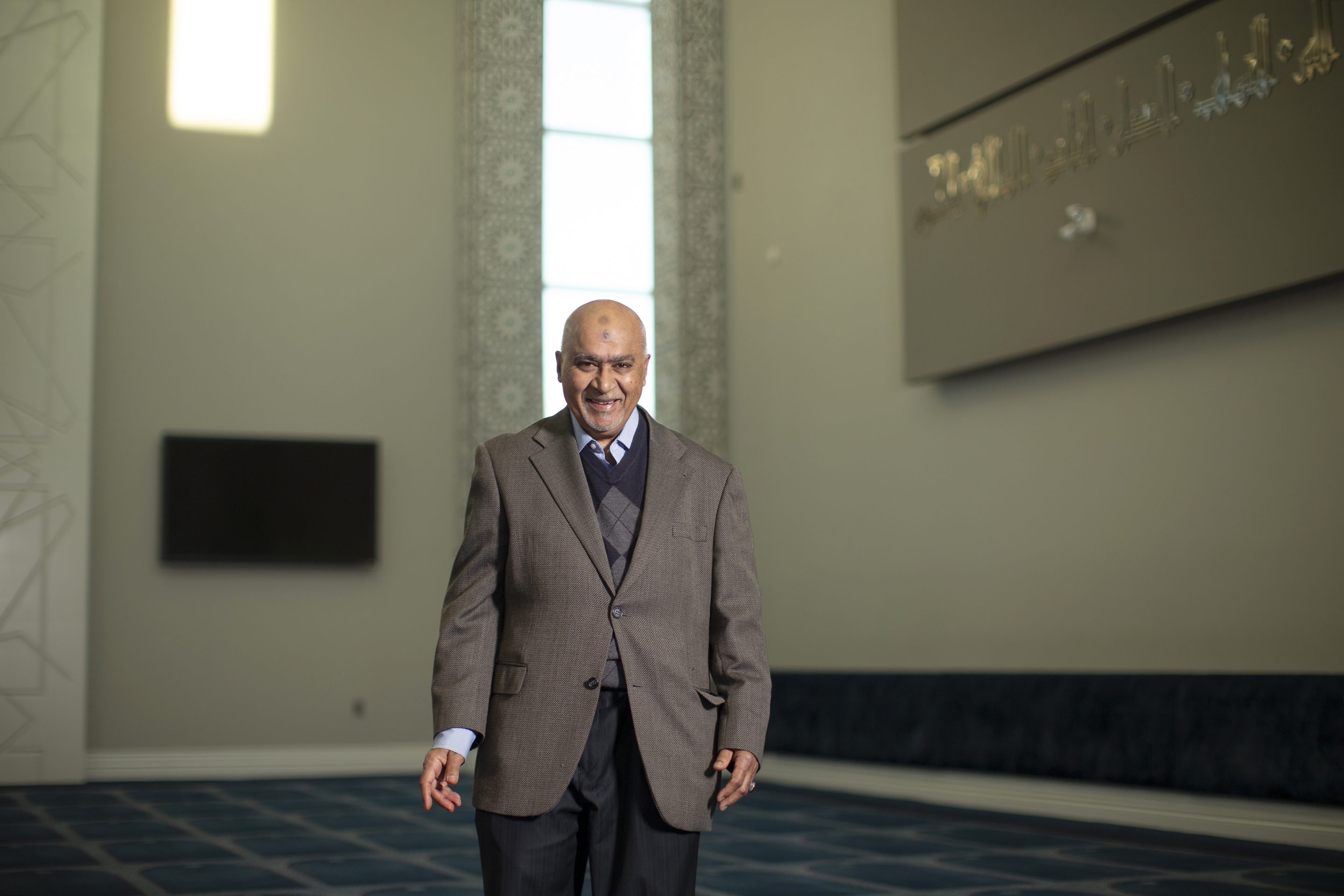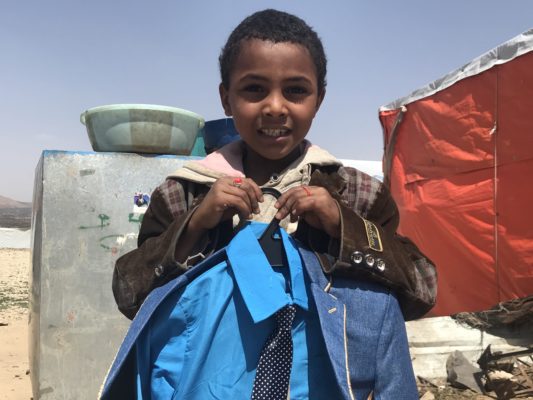
NASIMCO Vice-President Gulamabbas Najafi is seen at his office in Thornhill, ON, in December 2019. ©UNHCR/Chris Young
By Fiona Irvine-Goulet
Gulamabbas Najafi, Vice-President of NASIMCO (North American Shia Ithna-Asheri Muslim Communities), understands what it’s like to be a refugee: in 1972, during Uganda’s brutal regime of Idi Amin, Najafi and his family were forced to flee from their homeland.
“You are expelled overnight. You don’t know where you are going to end up,” he recalls. “We left with only a few small belongings in a suitcase and hardly $50.”
NASIMCO, where Najafi has volunteered in leadership positions for several years, has been a generous supporter and partner of UNHCR since 2015, donating hundreds of thousands of dollars to the Refugee Agency.
Founded in 1980, NASIMCO is an umbrella organization for Shia Ithna-Asheri communities in North America. It works to connect the religious, cultural, educational and social needs of Shia Muslims both locally and globally, building bridges between communities.
NASIMCO supports UNHCR in Syria, Yemen and Bangladesh
NASIMCO’s community development work and humanitarian relief projects are both diverse and far-reaching. For example, they sponsor 615 orphans in Iraq and cover school fees for impoverished students in Tanzania and India.
Here in Canada, Najafi says, NASIMCO’s projects include supporting local food banks and providing emergency aid, such as during the 2016 Fort McMurray fire disaster.
NASIMCO partnered with UNHCR to leverage the agency’s expertise and resources in Syria, where 13.5 million people need help. Yemen is another area of focus for NASIMCO, supporting UNHCR’s work in what is now the world’s largest humanitarian crisis. Najafi adds that NASIMCO is also helping UNHCR in Bangladesh, where over one million Rohingya Muslims have fled violence in Myanmar.
“We work with UNHCR based on the kinds of projects and initiatives they are doing, primarily with the interest of what the [specific] communities’ wishes are, including priorities such as food and medicine,” Najafi says.
Najafi and other members of NASIMCO have witnessed the plight of refugees and internally displaced people through field visits to East Africa and Bangladesh.
“It inspires me, having seen the conditions of people, especially children, in reality, how they are struggling for even one meal a day, and a long walk just to get water,” Najafi says.
“How lucky are we, and yet we complain about little things. … Islam teaches us to give to charity and look after needy people around the world.”
Living by the “paying it forward” philosophy
Najafi feels blessed to be living in Canada. After fleeing from Uganda, he and his family arrived in England as refugees. An accountant working in senior management, Najafi eventually immigrated to Canada, where he now lives and works outside of Toronto.
Giving back is important and he feels that Canadian businesses can also do their part. “I would strongly urge organizations to help refugees. They can help them to re-establish themselves, to give them the confidence to do so.”
The benefits are enormous, Najafi says, attesting to the fact that refugees who are given an opportunity will pay it forward: “Given a chance, these people really flourish and then will continue in the cause of charity, because they themselves have come as refugees.”




